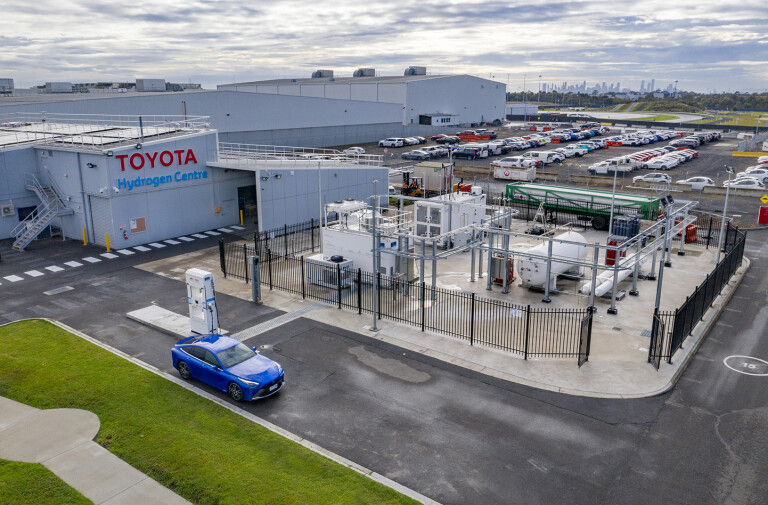
Could burning hydrogen save the internal combustion engine?
Toyota, Mazda and Subaru seem to think so. All three brands (Toyota is Subaru’s single biggest shareholder) have just entered a joint-venture to see if it’s possible; Toyota has even built and raced a Corolla hydrogen combustion car with a real exhaust note.
In theory, replacing petrol with hydrogen in existing internal combustion engines is relatively simple and – provided the cost of hydrogen itself comes right down – a potentially quicker way to zero carbon emissions. Unlike petrol or diesel, burning hydrogen produces none of the sort.
Toyota, too, has other motivations. Akio Toyoda wants to save – or at least appear to be trying to save – the hundreds of thousands of manufacturing jobs in Japan associated with internal combustion engines that might otherwise disappear in a total shift to electrification.
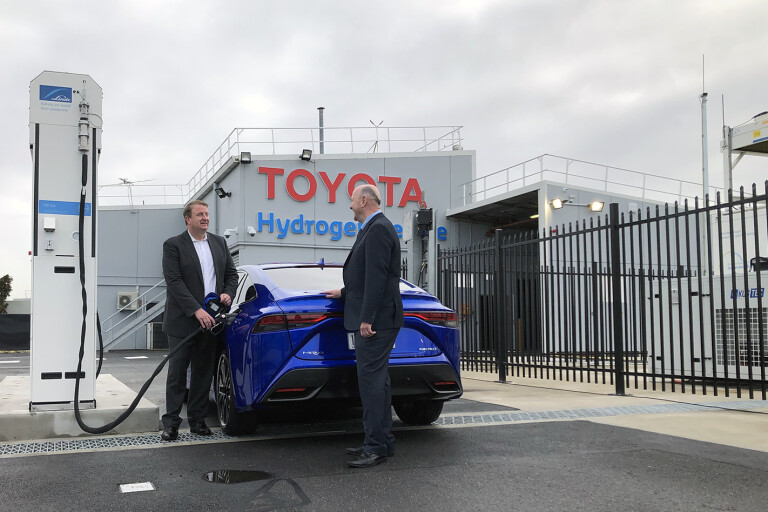
Of course, this is not the first time hydrogen combustion has been explored. BMW went down that road with a V12 7 Series from 2005 to 2007. During the 2000s, Mazda experimented with hydrogen rotary combustion engines. Aston Martin, Chevrolet and Ford have also had a look, but mostly the technology has been a lame duck.
But it seems hydrogen is having its time in the sun – so to speak – yet again. That’s due to the sheer urgency and effort required to decarbonise as the world sets itself ambitious deadlines of 2030 and 2050. At present, nearly everything is powered by fossil fuels, and it might be quicker to cut carbon emissions by burning hydrogen instead – buying precious time as we move en masse to renewables, batteries and electric motors.
It makes sense, too, given hydrogen’s retrofitting potential into existing infrastructures. In Europe, for example, where fossil fuels are widely relied on for heating buildings – a hugely ‘carbon expensive’ task – hydrogen can be integrated into existing gas networks relatively easily.
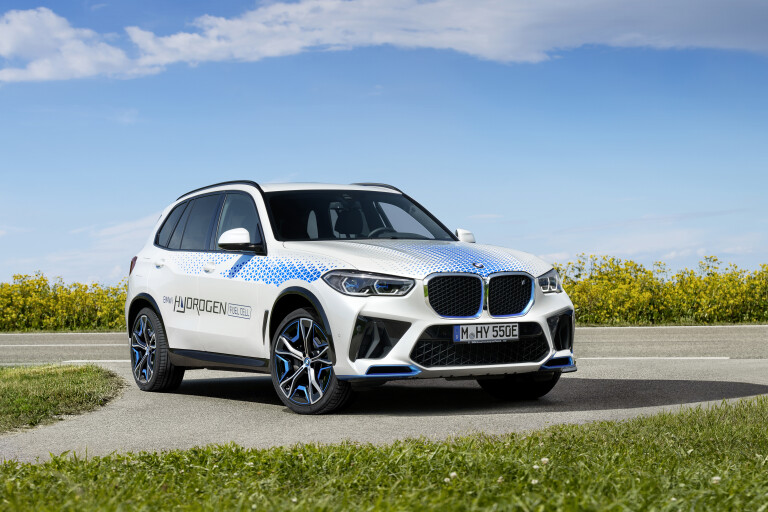
Some start-ups in America, too, like HyTech Power, are already offering retrofittable hydrogen combustion set-ups for diesel trucks. Converting America’s existing fleet of 15.5 million diesel haulers to hydrogen combustion could cut emissions a hell of a lot quicker and more cheaply than outright replacing them all with electric.
But for car enthusiasts, could hydrogen really save the internal combustion engine – and the exhaust note along with it?
In theory, yes, but not without overcoming some probably terminal obstacles. Currently, hydrogen is very expensive – and carbon-intensive – to produce. First, it would need to become significantly cheaper; and its manufacturing would need to be powered by renewables rather than fossil fuels, otherwise you’re pinching from Peter to pay Paul. But global demand for ‘green hydrogen’ is tipped to skyrocket in the coming decades – at least, that’s a bet Australia is making by investing in new hydrogen manufacturing capabilities, as announced only a few months ago.
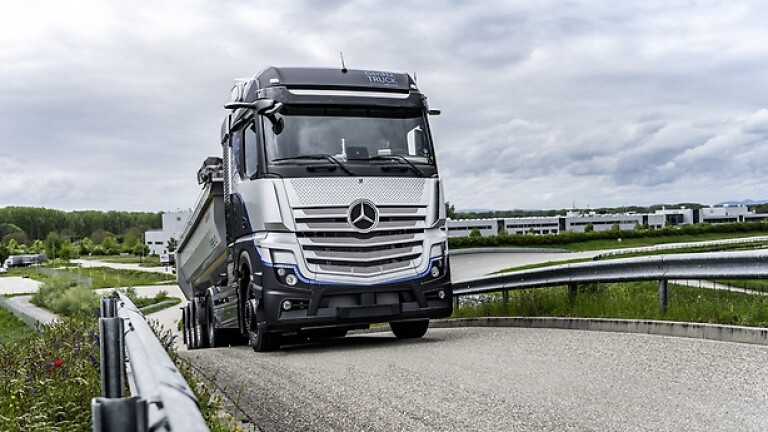
Secondly, until it’s cheaper, burning hydrogen compared to using it in a fuel cell is caveman stuff. Like petrol engines, burning hydrogen is only about 25-35 percent efficient; but in an electric fuel cell, that’s more like 60 percent. To go the same distance burning hydrogen as you could using it to generate electricity in a fuel cell, you’d need a fuel tank twice the size, and it would cost twice as much.
When combined with forced induction, hydrogen can actually yield around 15 percent more power than petrol without any carbon emissions whatsoever. However, it does produce nasty nitrogen oxides, a somewhat major drawback. If you switched every internal combustion engine in the world to hydrogen overnight, you’d be creating a new problem, one catalytic converters maybe couldn’t solve alone. Hydrogen fuel cells, on the other hand, are genuinely ‘zero emission’, only emitting water vapour.
Then there’s the question of storage. Hydrogen is less energy dense than petrol, so you simply need more of it to get the same results. Compressing hydrogen at 700 bars is obviously more fraught than simply filling up a fuel tank with liquid hydrocarbons. Liquid hydrogen, while more dense, needs to be kept just below its boiling point, which is minus 252 degrees Celsius – not easy, especially within a tightly-packaged car.
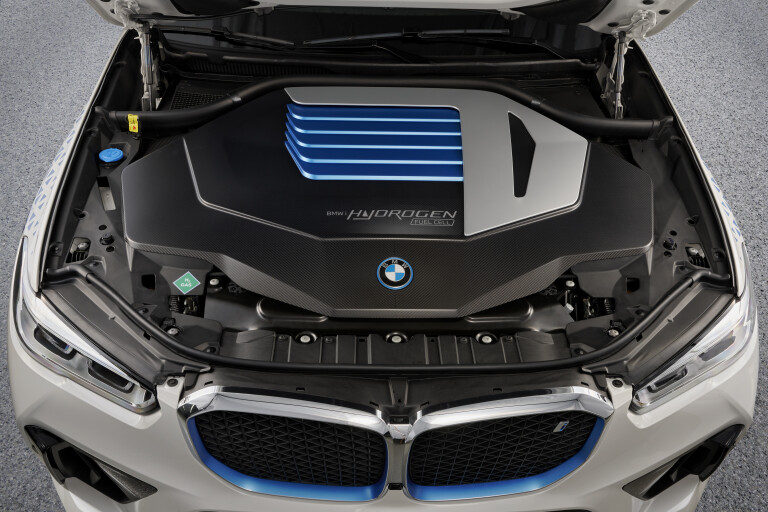
All this aside, there’s still a chance hydrogen combustion could be used in motorsport where noise is a critical part of the show (such as Formula One) – and cost is no issue. But on this stage, hydrogen must compete with new, emerging biofuels.
And back on the open road, economies of scale and battery breakthroughs are on track to give electric vehicles an unbeatable financial edge over anything with a complicated combustion engine. Electric motors, after all, are simple and comparatively cheap – it’s the heavy, expensive batteries that have held EVs back, but possibly not for much longer.
The potential for hydrogen combustion certainly exists, but the winds of change are not blowing in its direction.

COMMENTS